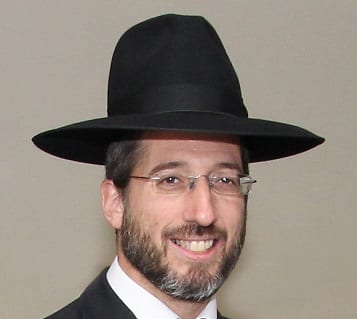
Picture the scene: You’re standing in a supermarket checkout line behind a toddler clinging on to his mother’s hand. Most youngsters feel like prisoners in a sweet shop at the checkout line because they are surrounded by all manner of treats towering above and swirling all around them. Supermarkets are carefully designed this way to encourage what they call “impulse buying” – they know these kids will take less than ten seconds before badgering their parents for several varieties of everything they can see. And the toddler in our scene is no different: Mummy, can I have one? And the mother responds: No. Mummy please? No. You’re blood pressure starts to rise because you are also trapped – somebody has wedged their trolley in behind you – and you know what’s about to happen: the child starts begging like his life depends on it. But the mother is steadfast: No! No! No! After several minutes of this, and with your headache now in full swing, you start thinking one of two things or both: either, can’t this child just pack it in? What a spoiled brat! Or, this mother is so cruel! What would it harm? After all, you’re the one who brought him shopping in the first place? Either way, you’re exasperated. But our scene does not end there. Picture this: All of a sudden the mother turns to the child and says: You ask me one more time and I’ll buy you whatever you want! Now you’re beginning to wonder about the sanity of this mother. But it goes one step further: The child’s response is to shrug his shoulders and say: It doesn’t matter, I don’t need anything. Hours later your head is likely to still be spinning. The child begged and begged, the mother resisted, then she finally relented, yet the child walks away – bizarre!
And yet that is exactly what appears to happen at the beginning of this week’s Parsha. Moshe Rabbeinu pleads with Hashem no less than 515 times (MedrashRabboh, Devorim 11:6) to gain entry to Eretz Yisroel – 515! And each time Hashem replies in the negative. A casual observer could be forgiven for thinking one of two things, or both: Either, Moshe, the answer is no! It was no after the first time and the 100th time and 500th time! Or, Ribono Shel Olom, please let him in for just 5 minutes! He’s Yourro’ehne’emon, the leader of Your people, look how much it means to him – would it really be so bad? And then, as in our perplexing story, Hashem relents and says: Rav loch! Enough! One more request and you’re in! At which point Moshe stops davening and effectively walks away. What on earth happened here?
Chazal (ShemosRabboh 21:6 (see PachadYitzchok Pesach 14), describing the situation of KlalYisroel at Krias Yam Suf, help us understand. The Yieden at that time were boxed in from all sides – the sea ahead of them, wild animals around them and the enemy closing in from behind. At which point they raised their eyes Heavenward and started crying to HakodoshBoruch Hu as the posuk says “and the BneiYisrel cried out to Hashem”. Why did Hashem do this to them? Because He “craves” their prayers. The Medrash goes on to compare this to a king who was travelling and heard the cries of a princess under attack who he immediately rescues. But after a short time passes the king yearns for the cry of the princess again and so he stages an “attack” from which he “delivers” her. Similarly when the Jewish nation fell quiet after their rescue from Mitzrayim, Hashem orchestrated this new threat so that He would hear their voices once more.
The powerful message that emerges from this Chazal is that contrary to the belief that we daven for our needs rather we have needs in order that we daven. The communication with the RibonoshelOlom, that is what He desires – it is about the relationship. When things go awry, it is only to fire up that communication again. (As an aside, this is true of any important relationship – the gadgets, gimmicks and presents are only valuable as a part of a meaningful dialogue, something all the money in the world cannot buy).
No-one knew this more than Moshe. His overarching concern was not just to enter Eretz Yisroel, to receive that gift. Far more concerning was the fact that he was being barred in the first place. He knew that this was due to his misdemeanour (on his level) at Mei Meriva. He knew this had distanced him somewhat from Hashem. And that made him distraught. So before he departed from this world he set his mind to repair that damage, to close that gap. He understood that Eretz Yisroel was being held back from him as a means to bring him closer – Hashem was craving his entreaties. And so he began to daven. And daven.And daven. Until eventually HakodoshBoruch Hu told him: Moshe, you’ve done it, you’ve completely repaired the breach, there is nothing between us any more. Should you wish to still enter the Land I can make that happen but it will involve a reversal of My Divine plans. To which Moshe’s response was that he had no need to enter the Land if that was contrary to Hashem’s plans! His concern was the gap and that had now been closed. As far as he was concerned, it was mission accomplished.
For all of us, the same holds true. There is nothing Hashem covets more than our relationship with Him. Sadly, on occasion, we can drift into complacency. So Hashem wakes us up and shakes us up, as if to say: Talk to me! Is that too much to ask for? Vo’eschanan – talk to Hashem.







